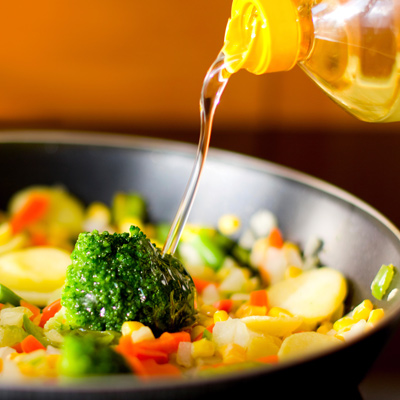Cholesterol isn’t bad

One of the key ingredients for a healthy heart is keeping cholesterol under control. Decreasing dietary cholesterol intake can reduce blood cholesterol levels; however, the magnitude of this effect is relatively small. It has been estimated that only 25% of the population will have significant increases in their cholesterol levels in response to increase in cholesterol in their diets. Cholesterol does have a role to play in cardiovascular health but what may be most important is how our cholesterol is handled rather than how much of it we consume. When exposed to oxygen, heat and other forms of processing, cholesterol becomes more of a risk factor for atherosclerosis.
Atherosclerosis
Atherosclerosis, or plaque in the arteries, develops when damaged “oxidized” cholesterol comes into contact with the delicate lining of our blood vessels. Our immune system, in an attempt to fix the damaged cholesterol, sends out white blood cells. When these white blood cells come into contact with the damaged cholesterol they create abnormal frothy cells called “foam cells” which stick to the inside of the blood vessel and can eventually cause a plaque to form. In order for this cascade of events not to occur we must take care of our blood vessels by living a healthy lifestyle and we must avoid subjecting our body to unnecessary oxidized cholesterol.
Oxidation
Oxidation is a chemical reaction where a molecule will loose electrons in the presence of oxygen. A mixture of oxygen exposure and heat can cause this to occur. The “oxidized” molecule will now do anything to get those electrons back, including stealing them from healthy tissues. These oxidized molecules are sometimes referred to as “free radicals” and as the name suggests can wreak havoc on healthy cells.
The way we cook and store our food can prevent unnecessary oxidation of fats and cholesterol, therefore dramatically improving our cardiovascular health.
Cooking Temperature
Most chemical reactions require a catalyst in order to take place. Heat is often the catalyst in the chemical reactions that take place in food. Fats and cholesterol are very sensitive to heat and will become oxidized when exposed to high temperatures. A study in the Journal of Agricultural and Food Chemistry looked at the oxidation of cholesterol under different cooking temperatures. Cholesterol was found to be relatively stable at a temperature of 100 degrees celsius for 24 hours. Temperatures in excess of 120 degrees celsius produced oxidized derivatives of cholesterol within one hour. Oxidation of cholesterol was at a maximum at temperatures in excess of 150 degrees celsius. These results demonstrate that the level of heat at which we cook our cholesterol containing foods (meats, fish, eggs, dairy etc..) will impact the potential for that food to be healthful or harmful.
Cooking Time
Perhaps one of the most interesting studies I came across on this subject was comparing the effect of different cooking methods on the fat quality and cholesterol oxidation of salmon. When comparing steaming to pan-frying it was found that steaming produced twice as many cholesterol oxidation products as did pan-frying. The authors conclude that this is likely due to longer cooking time during steaming, and therefore longer heat exposure. It seems that a delicate balance between time and temperature must be obtained for the healthiest results.
Cooking Method
Not only does the temperature and time affect the quality of the fats we cook, but there is evidence to suggest that the device used to cook may contribute as well. A study done in 2003 looked at the oxidation of cholesterol in microwave cooking and in pan-frying. The results indicated that in beef and chicken patties, microwave cooking produced 3 times as many cholesterol oxidation products as did pan-frying. As an aside, chicken patties had twice as many cholesterol oxidation products as did beef patties.
Food Processing
The processing of food which often includes high heat, high pressure, freeze drying, dehydration, irradiation and chemical additives contributes to the formation of toxic derivatives of cholesterols and fat. Studies have indicated that powdered dairy products, powdered egg products, and smoked meats are some examples of prepared foods that have high potential for toxic derivatives.
Food Storage
Factors which can contribute to cholesterol oxidation during storage are: light, air, temperature, pre-cooking and freeze-drying. As a general rule of thumb it is always best to prepare fresh unprocessed food daily. The following tips will help in the healthful storage of food items. Protect oils and fats (such as olive oil, vegetable oil, fish oil, butter, dairy, meat and fish) from light (use dark glass containers, store in dark environments), heat (store in cool environments), and oxygen (use airtight containers or vacuum sealing).
Conclusion
It is popular knowledge that dietary cholesterol intake has a role to play in cardiovascular health. The common belief is that, with regard to cholesterol, limiting intake is the primary method toward reducing cardiovascular disease risk; however, the amount of cholesterol may be just as important as the type of cholesterol when it comes to cardiovascular disease risk. Proper preparation and storage of oily foods is a disease prevention strategy that can have profoundly beneficial effects on health, and for the most part, is lacking in public awareness.


